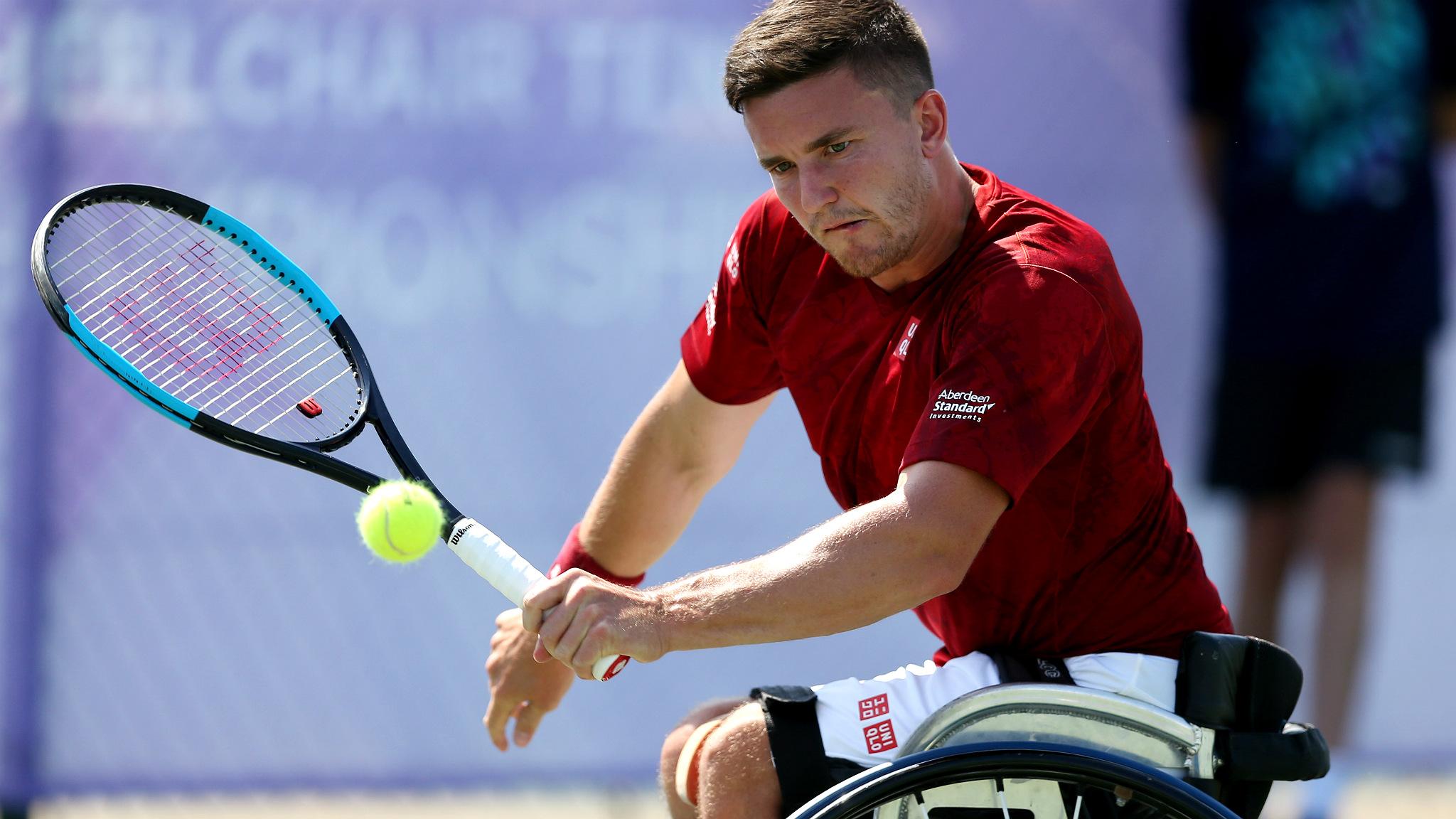Roger Federer & Rafael Nadal turn back clock in Australian Open final
- Published
- comments
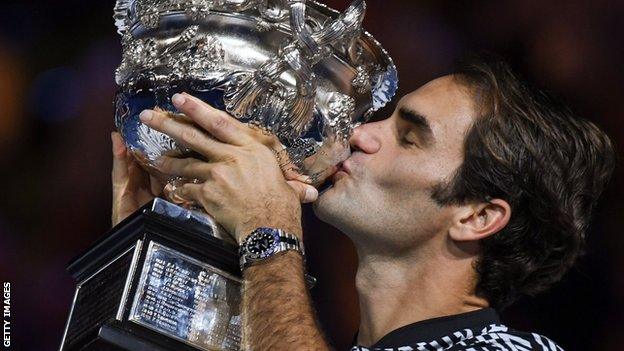
Roger Federer claimed his 18th Grand Slam with his victory over Rafael Nadal
Of course it was going to go to five sets. Of course it was going to make you feel sick for four hours. Of course it was going to go places that no other final and no other players could possibly go.
Before this Australian Open final between Roger Federer and Rafael Nadal even began, it felt like the Beatles reforming in 1979 for a one-off gig. When Federer's forehand finished it, deep into the Melbourne night, it was as if they had released a new Revolver too.
Federer, supposed to be not only past his prime but past the period when he was past his prime, took on logic, his nemesis and the unarguable passing of time. In coming past all three he may have pulled off not only the best of his 18 Grand Slam singles titles but possibly the greatest Slam victory of all.
Out injured for the past six months. Adrift in the rankings; superseded by the younger, fitter, faster. Thirty-five years old, a father of four - in recent seasons worshipped as a relic rather than real-time contender.
And then a break down in the deciding set, off court for a lengthy medical time-out, receiving further treatment between games as Nadal's forehand pulled the legs off him like a cruel kid playing with a crane fly, only to reach back into the years for one final dazzling burst.
Most meetings between the world number 17 and the world number nine are not like this. But then no-one has ever been like Federer and Nadal, the two finest players in history, the rivalry between them approached only by McEnroe and Borg.
It is 31 months since Nadal last got past a quarter-final at a major, seven years since Federer last won the title here, and this was the past come back gloriously to the present: a beautiful final for troubled times, sport playing to perfection its role as the sweetest of distractions.
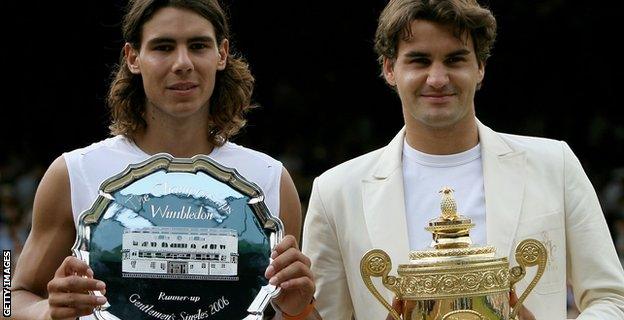
Rafael Nadal and Roger Federer (pictured at Wimbledon in 2006) have met in nine Grand Slam finals
A fortnight ago, the odds on a Federer-Nadal and Venus-Serena pair of finals was 5000-1. It should have been impossible, and that has made it all the more impossible to resist.
When Nadal opened his tennis academy in Majorca four months ago, Federer turned up to wish him well. Both were injured, reduced to hitting sponge balls against kids, old warriors turned battle-damaged friends. They wore suits, and looked ready for slippers.
All those Slam campaigns, all those slugfests on hard courts and knee-jarring slides on clay and chasing on slick grass, seemed to have taken their toll.
Federer's back had gone, and then his knee. Nadal's knees for once seemed OK, but his wrist had failed instead. At Wimbledon, where the 2008 final between the two took its sport to new heights, Nadal's last four appearances have ended in defeat to the world number 100, 135, 144 and 102.
Australian Open: Roger Federer beats Rafael Nadal to win 18th Grand Slam title
For the two to be reunited like this, on such a stage, felt like one last glorious treat from a pair who had already given so much. With the happiness came melancholia too, for nothing marks your own ageing process like the fading of the sporting stars who have defined your fondest years.
They looked different, marching out into the Rod Laver Arena on Sunday, following the same path as most men in maturity: thinner hair, longer sleeves.
The crowd in Melbourne, and the millions postponing critical Sunday chores around the world, reacted differently too. You were always either Roger or Rafa. There was no in between, not when their styles and characters were so distinct.
For this 35th meeting, there was instead confusion. There are some sporting contests when you want both sides to lose. England football supporters may recall West Germany v Argentina in the World Cup final of 1990.
This was one when you wanted both to win.
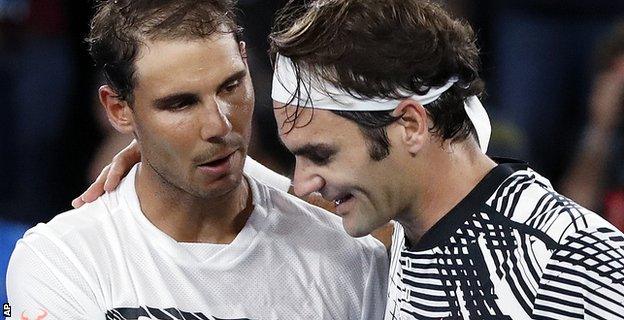
Roger Federer has won 12 of his 35 matches against Rafael Nadal since 2004
A home-made banner in the stands read, 'Let's Go Fedal!' For the first four sets the players themselves appeared to be similarly compromised.
Federer dominated the first, going at 63% on his first serve, winning 93% of points on it. He hit 13 winners, shortening points as much as he could, coming in to the net and winning five of seven points there. Nadal found himself outpaced and sometimes wrong-footed.
The second saw Rafa reborn in a storm of thrashed forehands and screamed vamooses, Federer not only crumpled by that left-handed howitzer but pummelled by a percussive body serve.
The third - Federer three break points down in his opening service game only to save them all with aces out wide, and then breaking with aggression and sweaty toil.
The fourth - Nadal's energy and endurance opening a lead, the set garlanded by the exchange of the night for 4-1, the Spaniard flicking an outrageous squash-style forehand cross-court for a winner when Federer's own backhand crashed cross-court seemed to have won the point.
Federer applauded that one, and grinned across the net. But this was a contest about the dramatic tension as much as its early quality, and it was a match that will be remembered for its final titanic set rather than the preceding four.
Federer, broken in his first service game with a weary forehand wide. Nadal, saving three break-back points in his first, saving two more in his next. Federer, setting up break points yet unable to take them, finally levelling it up at 3-3.
And then the eighth game, Federer 4-3 up. Three break points, Nadal double-faulting, the plot's course surely set.
Nadal responding with two winners; Federer, at 30-40 and on a feeble second serve, chunking a backhand into the tramlines. Another break point, a Nadal ace. A 26-shot rally on the next.
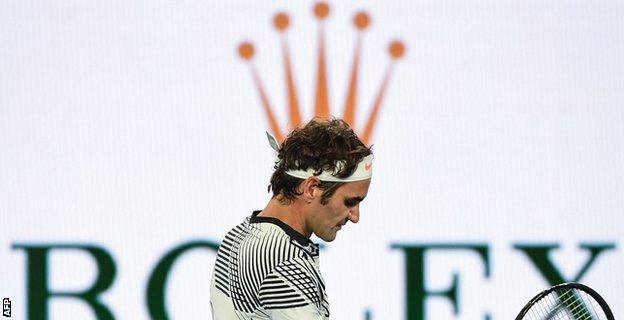
Roger Federer leads the list of all-time men's major winners with 18 Grand Slam titles
It was almost too much - less a final hurrah than a crescendo that no-one could have seen coming and few could handle. Even when Federer finally broke, even when he was serving for the championship, Nadal clawed his way to two break points. On the first championship point there was a successful challenge. On the second, the challenge fell short. The game, at last, was up.
"Tennis is a tough sport," said an exhausted Federer afterwards, tears in his eyes and aches in his bones.
"There are no draws. If there were, I would have been happy to accept one tonight and share it with Rafa."
As a champion who was supposed to be spent, it brought to mind Jack Nicklaus winning his 18th major at Augusta in 1986. As a smooth warrior expected to be felled by the muscular jabs and hooks of the younger man, it was reminiscent of Muhammad Ali in Kinshasa.
And it brought back the words of BBC commentator Harry Carpenter as George Foreman finally fell under Ali's assault, amended to fit a player who has spent a career making precedent redundant.
"Oh my God! He's won the title back at 35!"
- Published29 January 2017
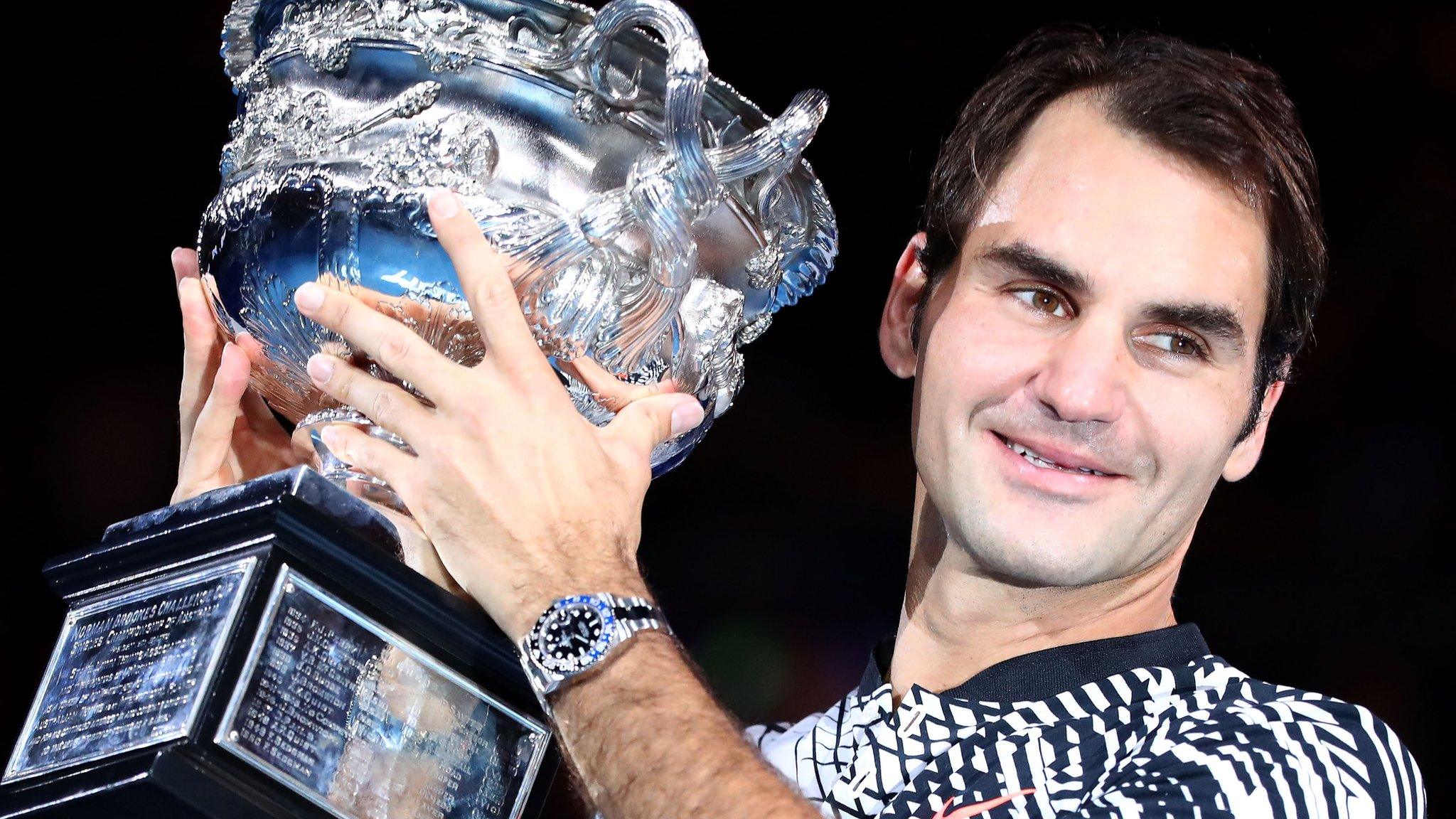
- Published28 January 2017
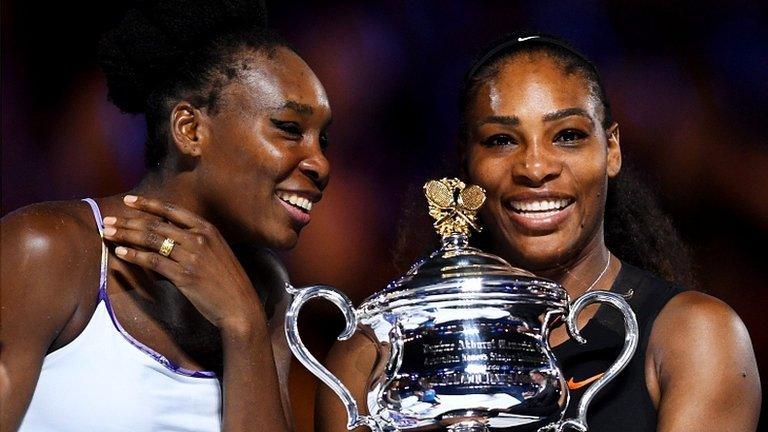
- Published28 January 2017
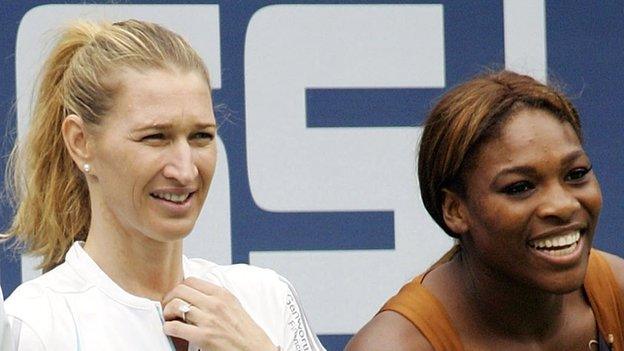
- Published28 January 2017

- Published17 June 2019
